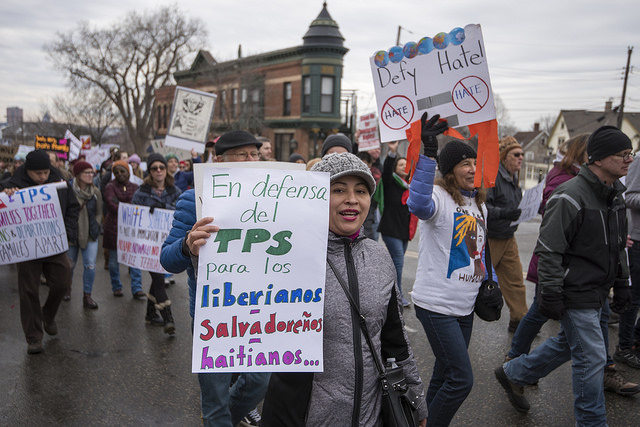This fall ILCM welcomes four new individuals to our team and celebrates three current staff members in their new positions at ILCM. We also welcome two new volunteers to our pro bono team and welcome back four volunteers to our Community Defense team, two to our communications team, and one to our Austin office.

Johan Cavert joined ILCM as a Lutheran Volunteer Corps (LVC) volunteer for this upcoming year in August, 2020. Johan spent this past summer as an intern with our community defense project, and over the next year, he will continue working with our community defense team and will also work with our pro bono team and provide some back up on intake. He is a 2020 graduate of Oberlin College, where he studied public policy, economics, and Spanish.

Andrea Duarte-Alonso is a Lead for America fellow with the Southwest Initiative Foundation (SWI). Because of Andrea’s interest in working on immigration issues, SWI has allowed Andrea to work at ILCM part-time and fully funded for the second year of her fellowship. Andrea lives in Worthington and will be working outreach and case support in Southwest Minnesota. Andrea earned bachelor’s degree in 2019 from from St. Catherine University in political science, women’s studies, and English, and she is a Truman scholar.

Hannah Gross also joined ILCM as an LVC volunteer in August, 2020. Hannah will be working with our development team and providing much needed administrative, research, and other support for our development work. Hannah is a 2020 graduate of Luther College, where she majored in Social Work and Nordic Studies.

Mackenzie Heinrichs is an Equal Justice Works fellow who will be working with ILCM for the next two years to respond to the needs of DACA recipients and DREAMers in the wake of the Supreme Court decision on the program and any subsequent action by USCIS and Congress. Mackenzie is a 2018 graduate of the University of Minnesota Law School and has spent the last two years working as an Attorney Advisor for the Executive Office of Immigration Review in Southern California.
Kathy Klos continues her work with ILCM as the Supervisor for our Pro Bono Project and Intake process. She began working with ILCM in May 2009 as a project attorney and then moved to Worthington, Minnesota in December 2009 to open and staff the ILCM satellite office there. Since August 2013, Kathy has worked in the St. Paul office, providing legal representation, outreach, and supervision of the Worthington office.
Sara Karki continues her work with ILCM in Greater Minnesota as the Supervisor of our Greater Minnesota offices in Austin, Moorhead, and Worthington. Sara Karki joined ILCM five years ago as a staff attorney in our Austin office. She will also continue to lead the Austin Area Minority Business Project (AAMBP). In 2019, Sara was named a 2019 Attorney of the Year by Minnesota Lawyer.
Tim Sanders Szabo continues his work with ILCM as our new Pro Bono Manager. He joined ILCM fall of 2018 as the recipient of an Equal Justice Works Fellowship sponsored by 3M and Faegre Baker Daniels. Tim’s project focused on establishing medical-legal partnerships with clinics in North and South Dakota, through which he worked alongside ILCM attorneys, staff, and pro bono counsel to increase access to legal assistance for underserved non-citizens in those areas.
This summer, we said goodbye to Simeon Huff, last year’s LVC volunteer, and Sonja Dangler, one of our pro bono project interns who came on part-time to support us when Anne Applebaum left her role as Pro Bono Director. We wish Simeon the best of luck as he works in social service back home in North Carolina/Tennessee and to Sonja as she starts social work graduate school at the University of Texas at Austin.





